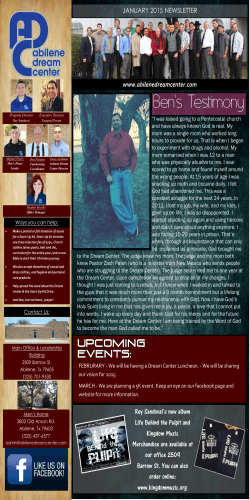
W S ?? HAT IS
WHAT IS SOCIAL SCIENCE?? A disciplined study and understanding of human behaviour WHAT IS ANTHROPOLOGY ?? THE STUDY OF HUMAN BEINGS AS A SPECIES AND AS MEMBERS OF DIFFERENT CULTURES. TWO MAIN BRANCHES: Physical Anthropology: Examines the way that humans are different from and similar to other species and how humans have evolved. Cultural Anthropology: Explores how culture shaped the way people lived in the past and how they live in the world today. Physical vs. Evolution Genetics Fossil evolution Forensics Primatology Also… sometimes these are further divided to include archaeology and linguistics Cultural Economics Ethnology Socialization Marriage Politics Gender Religion PHYSICAL: Forensic anthropology? http://www.youtube.com/watch?v=7cogeHybySI Can determine: gender, age, stature, racial affiliation, time since death, cause of death from markings on bones, identify illnesses and wounds vs. Forensic archaeology: The systematic archaeological recovery of buried remains and artifacts. Osteology: bones Dentition: teeth Ethnobotony: plant remains and pollen CULTURAL: SO WHAT IS CULTURE? The full range of learned human behaviour patterns; the beliefs, attitudes, values and ideals of a society. Culture is : Learned Shared with others Shapes how we understand the world Has patterns “Culture” used first in 1871 by Edward B. Tylor WHAT IF WE USED 2013 SUPERBOWL ADS TO TEACH US ABOUT TODAY’S CULTURAL VALUES? What would your observations of US culture and values be, based on these advertisements? "Whole Again" "Go Daddy - Perfect Match" Budweiser Baby Clydesdale Farmers "Viva Young" Which ad do you think has received the most criticism? In fact it has become the main target of #NotBuyingIt Which ad do you think has received the most fan votes? Oh, and the experts study them too! "Superbowl Ads that scored big" And here’s Ms Howie’s personal fave - ??? IMPORTANT TERMS Ethnocentrism: The tendency to judge other cultures by your own values. “We don’t do that so it’s strange/wrong/etc…” Cultural Relativism: Studying other cultures and values with acceptance and respect. Ethnology: Studying and comparing past with contemporary cultures. Ethnography: The in-depth description of a particular culture through extensive field work. S OF ANTHROPOLOGICAL Functionalism: Studies problems within society and how the institutions meet those needs Structuralism: Studies what makes cultures unique and different from one another. The goal of structural anthropology is to identify the hidden rules participants understand but are unable to articulate. Cultural Materialism: Technological and economic aspects play the primary role in shaping a society. Cultural materialism aims to understand the effects of technological, economic and demographic factors on social structure. WHAT IS SOCIOLOGY? THE STUDY OF SOCIAL LIFE, SOCIAL CHANGE AND THE SOCIAL CAUSES AND CONSEQUENCES OF HUMAN BEHAVIOUR. Sociologists study: Structure in groups and society Organized crime Religious groups and cults Work Politics Race Social class Gender Sport Etc… GROUPS Primary Small groups Members hard to replace Frequently meet faceto-face Share in-depth things together Positive: caring supportive, secure Negative: forced to give in and conform Secondary Impersonal and formal Know minimal personal information Communication is mostly “small talk” Conflicts are less frequent Groups can seem distant and more intimidating CONFLICT OFTEN HAPPENS WHEN THE EXPECTATIONS OF ONE PRIMARY GROUP CONFLICT WITH ANOTHER (EX. FAMILY VS. FRIENDS) What are the primary and secondary groups you belong to? How do they manage your behaviour? MOVIE TIME!! “LOST IN THE STRUGGLE” Write down 3 questions a sociologist might ask when learning of these 3 young men and their lives. (i.e. circumstances, trends, socialization, etc…) S OF SOCIOLOGICAL Structural-Functionalism: Societies need certain things to function (education, reproduction, socializing, certain goods). Societies set up structures to perform these needed functions. Neo-Marxism: Economic power = political power. To understand society look at the economy and the great differences in power created by $$$. Symbolic Interactionism: Structures in society don’t need to be studied, it is all individual. We need to look at the individual mind and motivations to understand society. S OF SOCIOLOGICAL Gender Theory: The key to understanding society is studying gender inequality. Most structures in society are sexist and need to be reformed. Historically women’s work has been undervalued. Inclusionism: You cannot study society by looking through the eyes of the majority (ie. white males in N.Am.). You have to recognize the experiences of all ethnic minorities in order to understand societies. WHAT IS PSYCHOLOGY? THE STUDY OF HOW AND WHY HUMANS ACT ON AN INDIVIDUAL BASIS Theoretical/Experimental Psychology: Set up experiments to see how individuals act in particular situations in order to determine the range of human behaviours and/or the reasons for them. Clinical Psychology: Develops programsfor treating individuals suffering from mental illness and behavioural disorders S OF PSYCHOLOGICAL Psychoanalysis: Sigmund Freud (1865-1939). A process designed to uncover a patient’s unconscious thoughts by encouraging them to discuss their background, feelings and experiences with a trained psychologist. Behaviourism: John Watson (1878-1958). Believed that all behavioural responses are the result of environmental stimuli. Change the environment you change the behaviour or ex. to overcome phobia expose yourself to the fear. Learning Theory: (Pavlov, Skinner, Bandura). Believe that most human behaviour is learned, especially in childhood and youth. What we are aware of 10% → Easily retrieved 10-15 % → “Buried” requires psychoanalysis 75-80 % → Freud used the terms Id, Ego and Superego to describe the human character. ‘Id’ (pronounced as ‘it’) = the lower, more animalistic parts of our character (unconscious) ‘Ego’ = the way most of us act in everyday life, a compromise between needs, lust, morals and realism. The conscious decision maker. ‘Superego’ = higher values, ethics and morals (unconscious) OTHER IDEAS Phrenology: Franz Gall (19th century). That 35 behaviours and personality traits could be discovered by examining bumps on the skull. Examples – bumps 1 to 7 Reproductive instincts The love of one's offspring Affection and friendship Self-defense, courage and fighting Murderous instincts Guile; acuteness; cleverness Sense of property; the tendency to steal All branches of psychology approach the study of human mental processes by dividing them into two processes: sensation and perception. 1. Sensation: The process that activates our sense receptors – sight, hearing, smell, taste and touch. 2. Perception: The process that allows us to select, organize and interpret sensory signals to the brain. LET’S HAVE SOME FUN!! F ACTS FROM DREAMMOODS.COM One-third of your life is spent sleeping. In an average lifetime, you would have spent a total of about six years of dreaming. That is more than 2,100 days spent in a different realm! Everybody dreams. Simply because you do not remember your dream does not mean that you do not dream. In fact, you have several dreams during a normal night of sleep. A lack of dream activity may imply some protein deficiency or a personality disorder. On average, you can dream anywhere from one to two hours every night. Moreover, you can have four to seven dreams in one night. Blind people do dream. Whether visual images appear in their dreams depend on whether they were blind at birth or became blind later in life. Sound, tactility, and smell become hypersensitive for the blind and their dreams are based on these senses. Five minutes after the end of the dream, half the content is forgotten. After ten minutes, 90% is lost. Men tend to dream more about other men, while women dream equally about men and women. If you are snoring, then you cannot be dreaming. According to a research study, the most common setting for dreams is your own house. DREAM ANALYSIS Use the handout about dreams to think through your last dream. Step 1 – Write down every detail you remember about your dream. Step 2 – With a partner work through the questions on the sheet to help you think about your dream in an analytical fashion. Analyze yourself. Step 3 – for added fun choose 3 or 4 main symbols or places or themes from your dream. Go to www.dreammoods.com , along the top menu bar you will see “Dream Dictionary”. Try to find those symbols etc… to see what they really mean. WHAT’S THE DIFFERENCE? Psychology Usually have doctoral degree in psychology Theoretical psychologists do research and study rules that govern behaviour Clinical psychologists work with people to apply research and try to help them vs. Psychiatry General medical degree and then specialized training in psychiatry. Can prescribe meds. Sometimes referred to as a “shrink” LAST SLIDE – WOOT!! Lets watch the opening clip from: “When the devil knocks” about a woman with Dissociative Personality Disorder. (13 minutes) Write down 3 questions a psychologist might ask as they learned of this case.
© Copyright 2026











